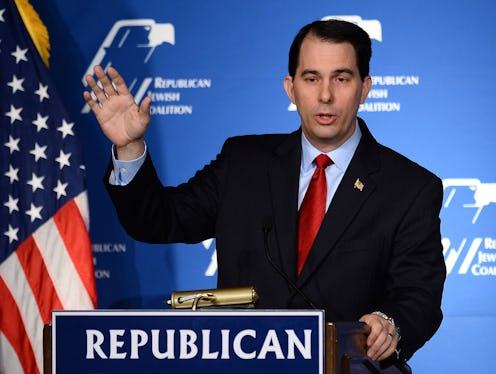News
It's A Good Day For Voting Rights
On Tuesday, a federal judge struck down Wisconsin’s voter ID law, ruling that it’s both in violation of the Voting Rights Act and completely unnecessary. Citing the nearly non-existent level of voter fraud in Wisconsin, Judge Lynn Adelman determined that the law would “prevent more legitimate votes from being cast than fraudulent votes,” and disproportionately prevent black and Latino residents from voting. Tuesday’s ruling makes it highly unlikely that the law will be in effect during Governor Scott Walker’s reelection in November.
“The defendants could not point to a single instance of known voter impersonation occurring in Wisconsin at any time in the recent past,” Adelman wrote in a blistering ruling. “Because virtually no voter impersonation occurs in Wisconsin and it is exceedingly unlikely that voter impersonation will become a problem in Wisconsin in the foreseeable future, this particular state interest has very little weight.”
The law required all residents to present one of nine forms of photo ID before voting. However, poverty rates in the state are higher among black and Latino voters, and because IDs cost money, black and Latino voters face a taller barrier to obtaining IDs. As a result, the law would effectively discriminate based on race, Adelman ruled, an explicit violation of what still stands of the Voting Rights Act.
"The reason blacks and Latinos are disproportionately likely to live in poverty, and therefore to lack a qualifying ID, is because they have suffered from, and continue to suffer from, the effects of discrimination," Adelman wrote. “Blacks and Latinos who wish to vote and who lack qualifying IDs must pay the cost, in the form of time or bother or out-of-pocket expense, to obtain what is essentially a license to vote.”
Because the law had already been blocked by a state judge, both rulings will need to be overturned in order for the law to take effect. That’s unlikely to happen before voters head to the polls in November, and while Walker had pledged earlier to appeal the decision, his staff wouldn’t commit to that after Tuesday’s ruling.
